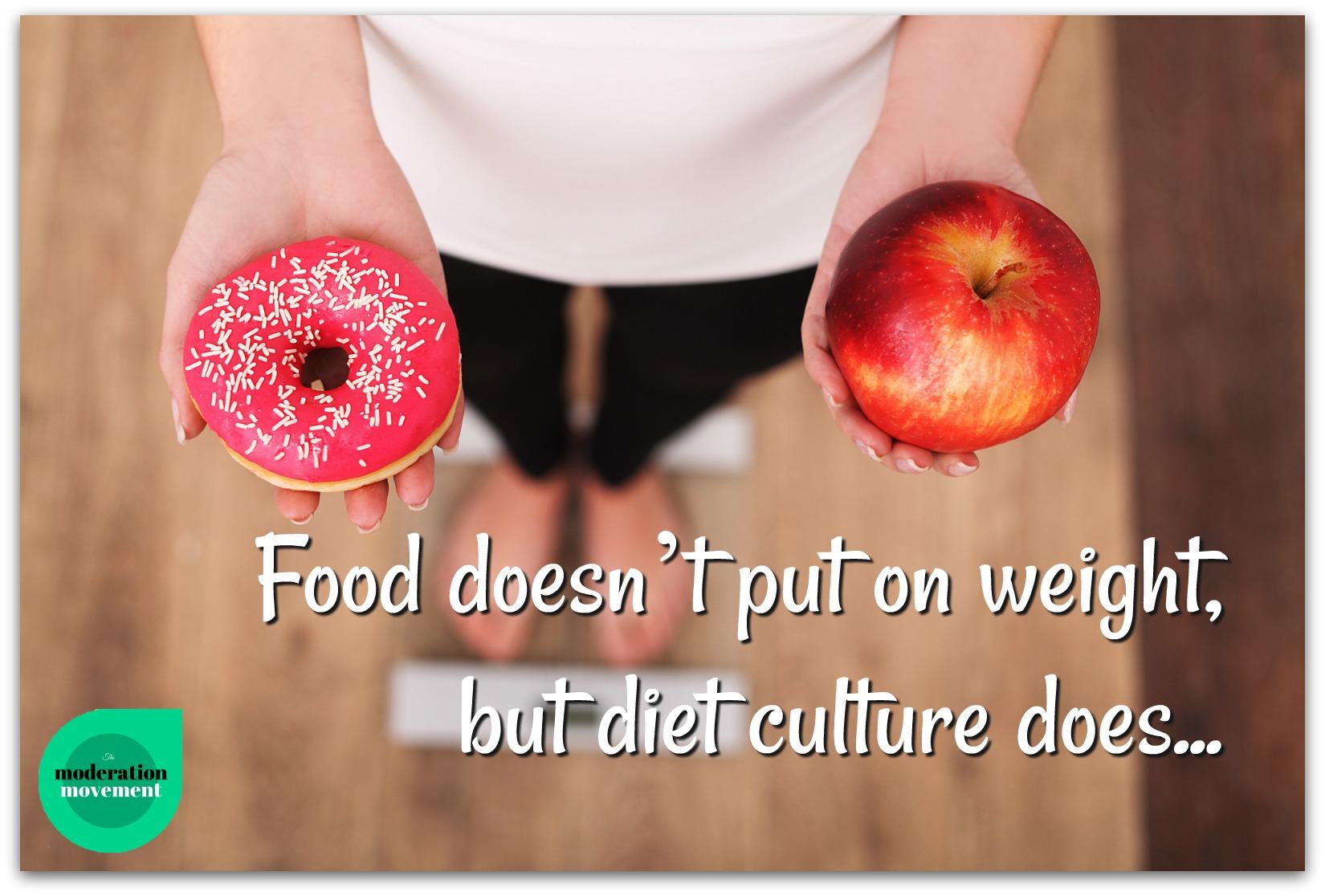Food doesn’t put on weight, but diet culture does…

There is no one food that causes a person to gain weight. You don’t eat cake or chips and wake up the next day fat. Of course if you over eat energy dense food on a regular basis, you may see your weight go up – but dieting does this too.
What many people don’t realise, is that activity avoiding the very food labelled “fattening” by diet culture, can, and often does, lead to weight gain over time, and it is now well established that dieting itself, is a risk factor for weight gain.
How?
When was the last time you overate salad, fruit or vegetables? Sure, we’ve all eaten a roast dinner with veg to the point of being overfull, but generally speaking we don’t over eat these foods. One reason for this is that we don’t restrict them. When you can have much of something as you want, the desire for it lessens. Combine this with the mandate that you “should” be eating the salad, and you may find yourself not wanting to eat any salad period. Conversely, when you’re told you shouldn’t have something (or do something), your desire to have or do that thing usually increases. It’s the forbidden fruit effect and it holds true for many aspects of life, not just food. Deprivation drives desire.
With regard to us being unlikely to overeat salad or veggies, I can guess some of you will be thinking that’s because fruit and veggies are much more filling or that they’re not as moorish as sweet or fatty foods, and while there may well be some truth to that, it doesn’t change the fact that it’s the “forbidden” foods that we are inclined to over eat.
Other factors that drive overeating are biological hunger (often greater when dieting) and emotional drivers which I won’t go into detail here, but to suffice to say, being hungry and restricting food both exacerbate drivers of emotional eating.
When diet culture tells us to avoid or limit certain food, this ends up being the very food that is over eaten and that leaves us feeling guilty or that we’ve “failed” at taking care of our health. This sense of guilt or failure is also a big part of what drives further over eating of the very foods we’ve been trying so hard to limit. As you can see, restricting food seen as “unhealthy”, for most people, just isn’t the solution to eating more healthfully.
So what might happen if we took the “fattening” or “unhealthy” label off these foods, if we allowed ourselves to eat them with full pleasure whenever we truly desired them? Gasp!
This is known as unconditional permission to eat and a key aspect of intuitive eating. The classic diet thinking, or diet mentality, is that if I allow myself to even one bite of the food, I’ll never stop. Paradoxically, what people discover when they allow all foods, and when they eat these foods with attunement to appetite, taste and satisfaction, is that in time, they no longer desire them as often. It must be noted that for most people, getting to point where food no longer has a hold over you, is not as simple as just allowing all foods and most people will need to address the many other factors that influence food choices. That said, the waning desire that accompanies unconditional permission to eat, is fundamental to eating in a way that is both nourishing and sustainable.
If you would like to learn more about the intuitive eating process and where to get help, look for a dietitian who works within the HAES (Health At Every Size) paradigm. Please be aware that anyone talking about non-diet or intuitive eating as a weight loss method will not using this approach effectively.
